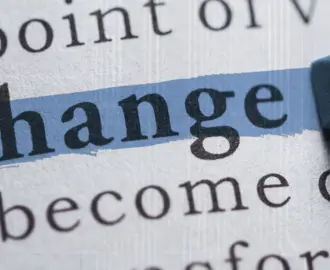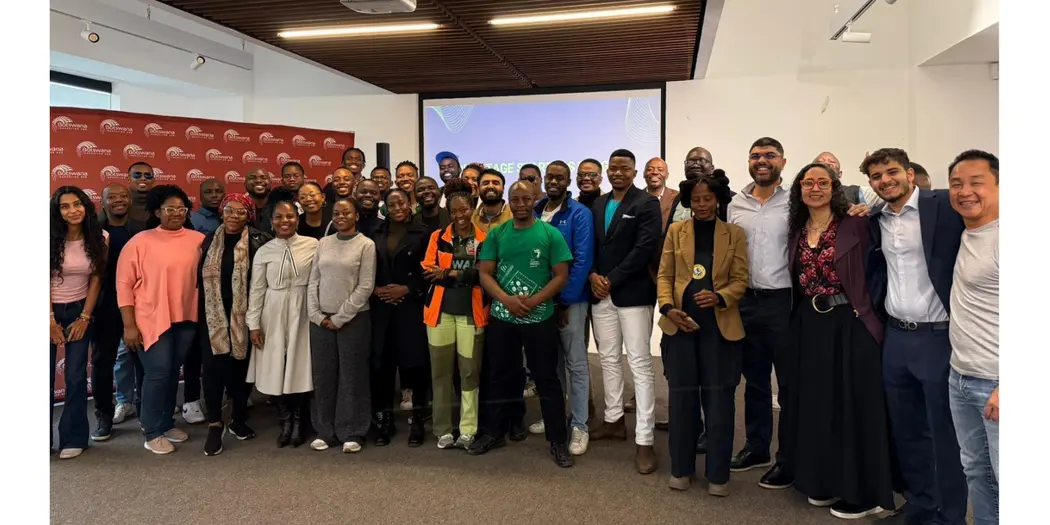MIT Kuo Sharper Center for Prosperity and Entrepreneurship
Entrepreneurship
How Attending a Bootcamp in Botswana Re-Shaped My Views Around Storytelling and Leadership
Blog by Lexi Chu
I came to Gaborone, Botswana, this summer with the MIT Kuo Sharper Center for Prosperity and Entrepreneurship for an early-stage startup bootcamp hosted by MIT and the Botswana government. Over 1300 aspiring entrepreneurs applied to this program. Only 30 got accepted. I came for the kickoff of this bootcamp. At the Botswana Digital and Innovation Hub (BDIH), we spent three days learning startup basics from business modeling to how to conduct customer discovery interviews. My job was to capture as much of the event through video and create social media content to tell everyone what was happening. I really wanted to learn about entrepreneurship and leadership, but I was so nervous to be surrounded by such accomplished people. Was I good enough?
I was later introduced to Donovan Beck, and he introduced me to storytelling. He said: “A storyteller’s job is to make sense of all of those things, connectedly.” He is a filmmaker and now a professional storyteller at the MIT Kuo Sharper Center for Prosperity and Entrepreneurship in Cambridge. He also told me, “The story is the bridging arc that brings big ideas to people directly.” Donovan also recommended I look at Marshall Ganz. One idea that stuck out to me was “The trick is to articulate a story that communicates the values that have called us to leadership, the values that unite us, and the challenges that we must overcome together.”
Early Stage Entrepreneurship Program participants with the MIT Kuo Sharper Center Team at Botswana Digital and Innovation Hub (BDIH)
I thought I understood what I heard, and I kept them in my mind as I helped capture the stories of early-stage entrepreneurs at the bootcamp through short interviews and videos. After a bunch of interviews and filming various conversations, things started to really come together. I began to understand the power of storytelling and why it’s so important for entrepreneurship, in addition to why it is so important for leadership. Storytelling isn’t just how we communicate, but how we connect big ideas, diverse people, and different cultures through shared values.
This new understanding has reshaped my thinking about who I am. Here are my main takeaways:
1) Entrepreneurship is complicated, and in order for people to understand why it matters, they need a story they relate to. Donovan told me: “Your product can be amazing, but if you don’t have a way to share it, and make people care, it’s going to be dead in the water.” Stories turn abstract ideas into something relatable. They are how we invite others into the mission, and it is not only when you are pitching to investors, but just as important when rallying a team or explaining your work to the world. I saw this firsthand when I interviewed a handful of the entrepreneurs. One entrepreneur told me where he grew up, getting nice clothes was difficult. The only thing he could find were used joggers, so he decided to start a clothing brand that provided affordable clothing to everyone. His story is very relatable because we all want a better quality of life for our communities, and that shared value made his company resonate with me and his story memorable and motivating.
2) I saw how storytelling unites towards common causes. Donovan said: “a good entrepreneur and a good founder of a company has to be able to move beyond convincing shareholders and venture capitalists through a traditional pitch deck. They have to be able to convince a team to want to invest their time and energy and resources into an idea.”
I started to understand that storytelling is an important tool to unite people with different backgrounds, interests, and skills to focus on a common goal. That is leadership. Great storytelling doesn’t just explain, it activates and aligns. Storytelling should be a part of every entrepreneur and leader’s tool kit.
I always thought good leadership was about being charismatic and talking loudly and confidently in front of a big room. I never thought I could be a leader because of this. However, now, I understand that leadership is about uniting and activating people, and that can be done through storytelling. Ever since I was 9 years old, I’ve been making videos, and like every 15 year old, I love YouTube and spend more time on it than I should. I also realized I’m good at creating content and I enjoy it. With these new lessons, I’m now inspired to be a leader in my own way by creating video content that can unite and activate many towards a bigger goal.
This summer, I want to use the rest of my time to document what I see, hear, and learn. I want to create a memorable and relatable story, and take the first steps towards leadership in a way that feels true to who I am.
Related Posts




